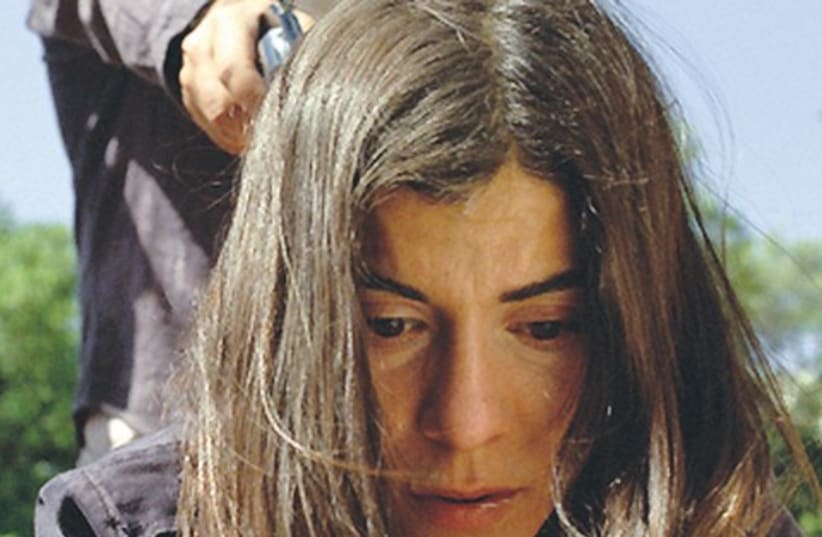Written by Villeneuve, Wajdi Mouawad and Valerie Beaugrand-Champagne.
128 minutes.
Hebrew title: Ha’isha She’shara.
In Arabic and French.
Check with theaters for subtitle information.Incendies is a wildly ambitious and uneven but brilliant movie. For all its excesses and lapses in logic, though, it has more impact than many far more careful, low-key films. As we head deeper into the so-called Arab Spring, it’s easy to forget what went on during what may come to be called the Arab Winter. The chaos of shifting alliances and brutal violence laid the ground for so many dictators to step into power, and the lives of millions were irrevocably changed by dislocation and loss. While Incendies has moments and plot turns that may confuse you, it makes dramatic political shifts and abstract religioius conflicts personal by focusing on characters about whom we care.Unlike so many films that deal with Middle East politics, it is not a polemic. In fact, it turns conventional notions of good guys and bad guys upside down. And with its wonderful acting and intense visual storytelling, its director, Denis Villeneuve, has made it into one of the most moving films of the past few years.It starts off like a mystery or thriller. Two young adult twins living in Canada go to see the notary who is handling their mother’s will after her death. Jeanne (Melissa Desormeaux- Poulin), a mathematics graduate student, and her brother, Simon (Maxim Gaudette), are expecting something routine. But the notary (Remy Girard) for whom their mother, Narwan (Lubna Azabal), worked for many years, surprises them. He gives them each a letter they must give to someone else. Jeanne gets a letter for her father, whom she has long believed to be dead. Simon’s task is even more surprising. He must give a letter to his brother – but they have no brother.This set-up sends Simon into a rage – he doesn’t want to learn anything about his mother’s past – and Jeanne to an unnamed Arab country in search of clues about Narwan’s life. Narwan’s story is told in flashbacks interspersed with Jeanne’s journey. Narwan, a Christian from a small traditional village, was in love with a Muslim, but he was killed by her brothers.She has his child and, at her grandmother’s request, places the baby in an orphanage while she goes off to the capital to get an education. As a sectarian civil war breaks out, Narwan, a Christian who loved a Muslim, does not support or take a side in the conflict. But as she rushes back to the rural orphanage where she left her son, she witnesses events of shocking brutality that change the course of her life.From here on, any word about the plot would be a spoiler. The film can’t quite make certain plot turns completely credible, but it is riveting nonetheless. While it is quite incredible that one person would have lived through all the twists that Narwan does, thousands have experienced heartbreaking incidents that are similar. Once a society is caught up by the hatred shown here, in which seemingly ordinary people become torturers and murderers, the filmmaker suggests, then any outlandish turn of fate is possible.Based on a play by Wajdi Mouawad, one of the frustrating aspects of the film is that it is set in a fictitious country which is obviously meant to be Lebanon. It is a curious choice, since any viewer with a prayer of understanding the bulk of the action will have to be versed in Lebanese history. The curious decision to use fictitious place names is far more jarring than the real ones would have been.But any flaw in the design is minimized by the acting. The actors are superb, down to the smallest bit players. Remy Girard is sympathetic as the notary, and Melissa Desormeaux-Poulin and Maxime are utterly convincing as the confused twins. But it is Lubna Azabal’s movie, and her low-key performance is pitch perfect throughout. A gifted actress who has been a joy for years, in such films as Paradise Now and Strangers, her understated acting makes a woman who could have been a kind of stoic stereotype into a real and likable person.Incendies is such a strong film that it’s one of the very rare movies I’d like to see again, to pick up nuances I may have missed when I was caught up in unraveling the mystery the first time. And that’s high praise.
